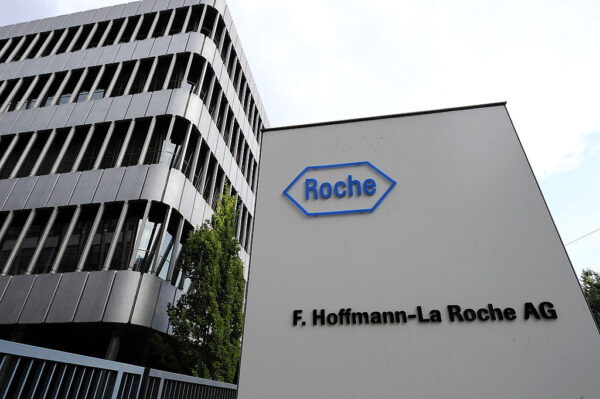
Biologic medicines are making inroads into chronic obstructive pulmonary disease (COPD), with two blockbuster antibodies expanding their FDA-approved uses to this lung disorder in the past year. A Roche drug just hit a setback in its bid to join them.
Roche’s astegolimab met the main goal of one pivotal study but failed to meet that mark in another, the pharmaceutical giant reported Monday. The company said it will share more detailed results at an upcoming medical meeting.
With astegolimab, Roche aims to treat inflammatory disorders by blocking IL-33, a signaling protein involved in inflammation and immune responses. The drug is a monoclonal antibody designed to bind to the ST2 receptor, blocking it from binding to IL-33. Roche had previously studied the drug in asthma, severe Covid-19 pneumonia, and atopic dermatitis.
In COPD, Roche had tested astegolimab in a Phase 2 test enrolling patients with moderate-to-severe disease. The registrational program for the drug spans two placebo-controlled pivotal tests, both enrolling all comers, including current and former smokers. All-comer studies are more representative of the patients likely to take a drug in the real-world.
In both the Phase 2b study and the Phase 3 study, astegolimab, administered as a subcutaneous injection every two weeks, was evaluated on top of standard of care COPD maintenance therapies. The main goal of the studies is measuring the annualized rate of moderate and severe COPD exacerbations over 52 weeks. Roche said the 1,301-patient Phase 2b test showed its drug reduced the annualized exacerbation rate by 15.4% at 52 weeks, which is enough to be statistically significant. In the 1,375-patient Phase 3 test, the 14.5% reduction in annualized exacerbations was numerically better than a placebo but short of statistical significance. Roche said the safety of astegolimab was consistent with prior studies and no new safety signals were identified.
“This was the first set of studies in an ‘all-comers’ COPD population, and we will discuss these data with regulatory authorities to evaluate next steps for astegolimab,” Roche Chief Medical Officer and Head of Global Product Development Levi Garraway said in a prepared statement.
Astegolimab’s data readout follows mixed results for an IL-33-blocking antibody from Regeneron Pharmaceuticals. In May, Regeneron reported this drug, itepekimab, met the main goal of one Phase 3 study with moderate or severe acute exacerbations reduced by 27% at week 52. But a separate Phase 3 test did not meet that goal. Regeneron is developing itepekimab under a partnership with Sanofi. The two companies are already partners on the blockbuster drug Dupixent, an antibody that blocks the signaling proteins IL-4 and IL-13. An IL-33-blocking drug would give them an alternative approach to COPD.
With astegolimab, Roche is hoping to join the group of biologic medicines available for COPD that is driven by inflammation. Last year, Dupixent added COPD to its list of FDA-approved indications. In May, GSK’s Nucala expanded its label to COPD. The GSK drug is an antibody designed to block IL-5.
Photo: Giuseppe Aresu/Bloomberg, via Getty Images










